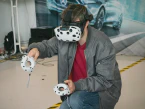Child Development Science

The conflicting messages in parenting books
Parenting is one of the most rewarding experiences a person can have, but it’s also one of the most challenging. Parents want the best for their children, but with so much conflicting advice out there, it can be hard to know what to do. In this blog post, we’ll explore the conflicting messages in parenting books and how the science of parenting and child development can help us understand the true impact of our actions.
The science of parenting and child development
As the video script points out, many parenting books promise to show us how to achieve the best outcomes for our children. They claim to address the difficult decisions parents face every day and reveal why each of us turned out the way we did. The problem with these books is that they send conflicting messages. Should we be tiger parents or free-range parents? Should we parent like the Dutch or the Germans? The one consistent message is that if our child isn’t succeeding, we’re doing something wrong.
But the science of parenting and child development tells a different story. Studies of millions of children have found that growing up in the same home does not make children noticeably more alike in terms of their success, happiness, self-reliance, or other outcomes. This means that the same parenting can lead to different outcomes for children in the same home.
The butterfly effect of parenting
Trying to predict how a child will turn out based on the choices made by their parents is like trying to predict a hurricane from the flap of a butterfly’s wings. Parents are the butterfly flapping their wings, and their child is the hurricane. Parents do shape the person their child becomes, but in complex, seemingly unpredictable, and powerful ways. The hurricane wouldn’t exist without the butterfly, but the butterfly can’t control the hurricane.
This means that parents should focus on loving their child today, now, and not try to shape a specific outcome. It’s important to appreciate the power of the moments we have with our children, not because of what they mean for our child’s long-term future, which we cannot control, but because of what they mean for our relationship with our child right now.
In conclusion, the conflicting messages in parenting books can make it difficult for parents to know what to do. But the science of parenting and child development tells us that the same parenting can lead to different outcomes for children in the same home. The butterfly effect of parenting reminds us that we have influence, but we don’t have control. We should focus on loving our child today, now, and hugging the complexity of their development.
The Influence of Genes and Environment on Child Development
The Influence of Genes on Child Development
It is a common belief that parents have a significant role in shaping their child’s future. However, recent research indicates that genes also play a crucial role in child development. Studies of identical twins, fraternal twins, and siblings growing up together or adopted and raised apart have shown that growing up in the same home does not make children noticeably more alike in how successful they are or how happy or self-reliant and so on. In fact, every single outcome that researchers have measured is heritable, meaning that genes do influence who children become.
The Complexity of Predicting How Children Turn Out
Although genes are an essential factor in child development, it’s also essential to note that the environment also matters. However, predicting how children will turn out based on choices made by the parents is like trying to predict a hurricane from the flap of a butterfly’s wings. In other words, it’s challenging to determine which forces influence who children become because there are many factors involved, such as successful parents, successful genes, successful peers, and a culture of success that children grow up in. The environment is just something that doesn’t shape children growing up in the same home to be more alike.
Different Experiences of the Same Event
One significant concept to note is that the same parent can shape different children in different ways. For instance, one child might find structure helpful, while another might find it stifling. One child might view a divorce as a tragedy, while another might see it as a relief. Same event, different experience. Just because an event doesn’t shape people in the same way doesn’t mean it had no effect. Therefore, while parents can shape their children, it’s in ways that lead them to become unique individuals, not necessarily more alike.
Conclusion
In conclusion, child development is a complex and multifaceted process, influenced by both genes and the environment. While parents can shape their children, it’s essential to recognize that the same parenting can lead to different outcomes for children in the same home. Therefore, parents should focus on what is most important and meaningful in their lives, rather than trying to shape a specific outcome. Appreciating the power of moments, being realistic, and accepting the complexity of child development can transform how we approach parenting decisions we face each day and enable us to realize how much more there is to having a child.
The importance of understanding how children develop
As a parent or someone considering becoming one, you may be interested in understanding how children develop and what role parents play in shaping their children’s lives. The following topics from the video script can help shed some light on this complex and important subject.
The influence of parents on their children
Parents have a significant impact on their children’s lives, but the way in which this impact is manifested can be complex and difficult to predict. The video script explains that studies have found that growing up in the same home does not make children noticeably more alike in how successful they are, how happy they are, or how self-reliant they are. However, this doesn’t mean that parenting doesn’t matter. The same parent can shape different children in different ways, leading to different outcomes for each child.
It’s important for parents to understand that they have influence, but not control, over their children’s path. As the video script notes, “trying to predict how a child will turn out based on choices made by the parents is like trying to predict a hurricane from the flap of a butterfly’s wings.” Parents can influence their children’s development, but they are not the only factor at play.
The power of moments in parenting
While it can be difficult to predict the long-term impact of parenting, it’s important to appreciate the power of moments in parenting. As the video script notes, “appreciate how powerful the moments can be, because of what they mean for you and your child right now, not because of what they mean for your child long-term, which you do not know.”
Parents should focus on loving their child today and hug the complexity of their child’s development. This can help them approach parenting decisions in a more realistic and satisfying way. The video script suggests that understanding the complexity of children’s development can enable parents and make their experience of being a parent more meaningful.
The importance of understanding how children develop
The science of parenting and child development can help parents better understand how they can shape their children’s futures. As the video script notes, “scientists are developing ever more sophisticated understanding of how parents could shape their children’s futures.” This understanding can help parents intervene early if necessary, as in the case of genetic conditions that used to lead to mental retardation.
Understanding child development can also help parents avoid feeling guilty or judged. As the video script notes, a recent survey found that 90% of mothers and 85% of fathers feel judged, and close to half feel judged all the time or nearly all the time, by people they know and by complete strangers. Understanding the complexity of child development can help parents realize that there is only so much they can do, and that blaming themselves or others is not productive.
In conclusion, understanding how children develop is important for parents and potential parents. While the influence of parents on their children is significant, it’s also complex and difficult to predict. Parents should focus on loving their child in the present moment and hug the complexity of their child’s development. The science of parenting and child development can help parents intervene early if necessary and avoid feeling guilty or judged.
Hugging the complexity of parenting
Parenting is one of the most complex and challenging experiences of our lives. From the moment a child is born, parents are faced with an overwhelming number of decisions that will shape their child’s future. But despite all the advice out there, the reality is that there is no one-size-fits-all approach to parenting. Every child is unique, and what works for one child may not work for another.
Letting go of the notion that parents control their children’s futures
One of the biggest myths about parenting is that parents have complete control over who their children become. But the truth is that there are many factors that influence a child’s development, and parents are just one piece of the puzzle. Genetics, environment, and peer influences all play a role in shaping a child’s personality and behavior.
It’s important for parents to let go of the notion that they are solely responsible for their child’s success or failure. While parents can certainly have a positive influence on their children, they cannot control every aspect of their child’s life. Parents must hug the fact that their children will make their own decisions, and that they will have their own unique experiences and challenges.
The relevance of science to being a good parent
As parents, it’s important to have a good understanding of how children develop. While there is no magic formula for raising happy, healthy, and successful children, there is a growing body of scientific research that can help parents make informed decisions about how to best support their child’s development.
Science can help parents understand the complex interplay between genetics and environment in shaping a child’s personality and behavior. It can also help parents understand the importance of creating a caring and supportive home environment, and of fostering positive relationships with their children.
Hugging the complexity of parenting
In order to be effective parents, we must hug the complexity of parenting. We must accept that parenting is not an exact science, and that there will be times when we make mistakes or feel unsure about how to proceed. But by staying open-minded, seeking out information and advice when we need it, and being willing to adapt our approach as our children grow and change, we can become more confident and effective parents.
At the end of the day, what matters most is the love and support that we give to our children. By hugging the complexity of parenting and focusing on what’s most important, we can help our children grow into happy, healthy, and successful adults.
Conclusion
Parenting is a complex and ever-evolving process. While parenting books promise to offer the best advice on raising successful, happy, and self-reliant children, the reality is that they often send conflicting messages. The science of parenting and child development has found that parents do have an influence on their children, but the complexity of predicting how children turn out makes it difficult to determine the exact role that parents play.
Despite the difficulties, it is important for parents to hug the complexity of parenting and let go of the notion that they control their children’s futures. Understanding how children develop and the power of moments in parenting can help parents appreciate what is most important and meaningful in their lives. It can make the experience of being a parent and the experience of having been a child more realistic and satisfying for everyone involved.
Ultimately, the science of parenting and child development can provide parents with a new way of thinking about parenting. By appreciating the complexity of their children’s development and the power of moments, parents can enable themselves to focus on what is most important and meaningful in their lives. By doing so, they can raise thriving children who are equipped to face whatever challenges lie ahead.
















